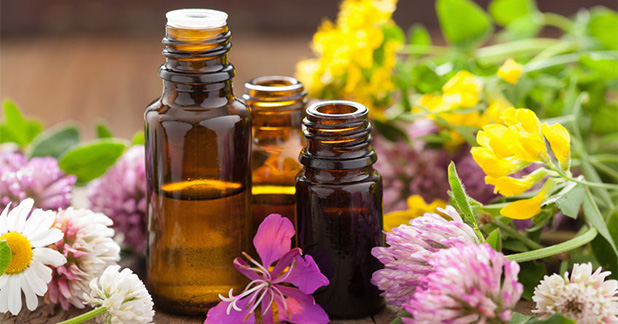This week, in the conclusion of my three-part article on herbs and essential oils, I intend to present a discussion of some of my favourites (see my blog for details) as well as a synopsis of some of the most useful essential oils – their strengths, properties, and the best ways to apply them.
The essential oil that I use and recommend most frequently is Peppermint: for headaches, a drop on the temples or rubbed into the palm of your cupped hands, held over the nose and mouth, and inhaled; for stomachaches, applied directly on the stomach; for sore throat, inhaling the oil (as above) or a drop taken in the mouth (Warning: This is only safe with therapeutic-grade essential oils). Peppermint is also good for muscle spasms, soreness, and relief from most kinds of pain. The oil is cooling to the skin and the aroma is energizing.
Other useful everyday essential oils:
Lavender is renowned for its benefits to the skin and in treating burns. Lavender is soothing, calming, and relaxing. It may be applied to the skin to treat acne or skin lesions, on healing wounds; on the bottom of the feet before bed, to assist in relaxation and deep sleep; inhaled (as peppermint, above) for headaches and sinus trouble. Be careful to get real lavender – the hybrid, lavandin, is often sold as lavender. Lavandin smells the same but will not have the same effects on the skin – it will only worsen burns.
Lemon oil is, like most citrus oils, expressed from the peel of the fruit. It smells sweet but tastes bitter. Lemon is great for cleansing, internally and externally, and it can be added to water to help purify it and remove any toxins – for example, in a restaurant. Also great to use a drop on your hands after using a public washroom. Lemon is the safest and most mild of essential oils, though it will sometimes discolour in direct sunlight, so should not be used on exposed skin.
Mint family herbs such as marjoram, basil, thyme, clary sage and oregano are renowned for their immune-supportive properties. Oregano has been touted by some as the cure for all ills – and it certainly is a powerful aid to the immune system, which ties in with so many of our symptoms and physical problems. These oils are also effective for relazing muscle soreness and rebuilding nerve, tendon, and muscle strength.
Cinnamon, ginger, and hot spices also yield essential oils which are stimulating to the immune system. They are especially helpful for the respiratory system. Many have been researched to kill bacteria and viruses. A blend of therapeutic-grade essential oils of cinnamon, clove, lemon, and eucalyptus has been shown to kill 99.96% of airborne bacteria in clinical testing. These oils can be applied on the throat or the stomach (third chakra) or on the bottom of the feet to support the entire body’s systems.
